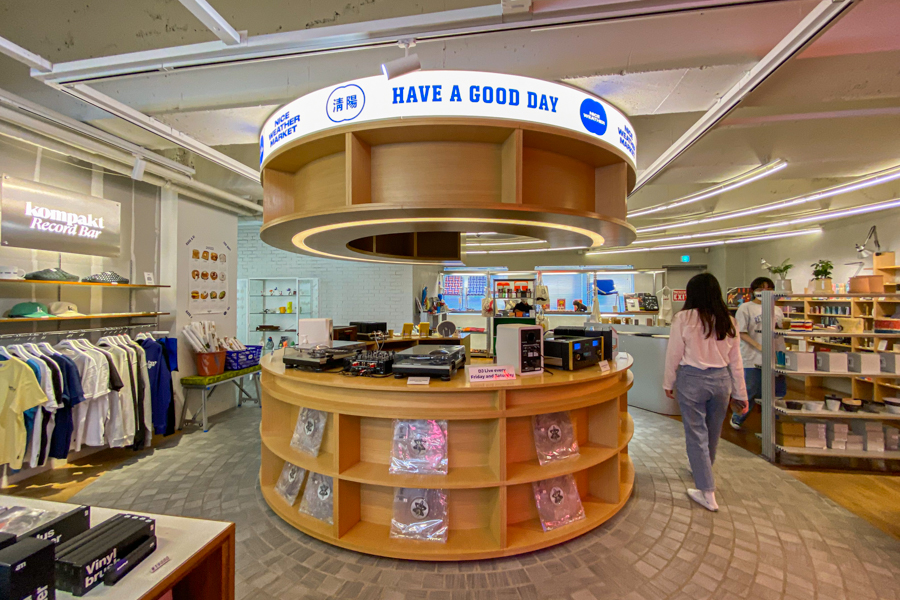Planning a trip to Korea? While the idea of delicious Korean street food and meeting your oppas is exciting, traveling to a foreign land might still be a bit intimidating for the first-timer even after watching all those Korean dramas and variety shows. After all, Korea uses an entirely different language and you probably can’t use phrases like 뭐야 (myo-ya) to a complete stranger. Don’t worry as here are 10 Essential Korean Phrases that’ll make your life a bit easier when traveling in Korea.
Korean Phrases You Need To Know When In Korea

1. How much is it? (Eol-ma-eh-yo)
In Hangeul: 얼마에요 | How it sounds: Eol-ma-eh-yo | Practice pronouncing here
When you’re in Korea, chances are you’ll end up buying something – be it delicious Korean street food, dried goods to bring back home, or even bottles of skincare. You’ll need to check how much the item is before making a purchase, and this is when you’ll use the phrase Eol-ma-eh-yo. The staff will probably reply in Korean, and if you don’t know your Korean numbers well, you can always show them a calculator app on your phone to input the numbers manually!
2. Do you have small change? (Jan-don ee-seo-yo)
In Hangeul: 잔돈 있어요? | How it sounds: Jan-don ee-seo-yo | Practice pronouncing here
Although Korea is pretty much a cashless country, most places still accept cash. However, sometimes for tourists, we only have large 50,000won notes after a visit to the money changer. If you’re visiting the convenience store buying a 1,000won drink with a 50,000won note, sometimes they don’t have enough spare change.
What we like to do is to ask if they have spare change before making a purchase – a move especially great when the line for the cashier is long.
3. Do you need a bag? (Bong-tu pil-yo-ha-se-yo)
In Hanguel: 봉투 필요하세요 | How it sounds: Bong-tu pil-yo-ha-se-yo | Practice pronouncing here
You’ll probably here this phrase alot when shopping stores. Usually the staff will ask if you need a bag for your purchases, and all you need to reply is either yes, which is 네 (pronounced ne) or no 아니요 (pronounce a-ni-yo). You can also use this phrase when you need a bag!
4. Just A Moment / Excuse Me (Jam-si-man-yo)
In Hangeul: 잠시만요 | How it sounds: Jam-si-man-yo | Practice pronouncing here
While the phrase Jam-si-man-yo (잠시만요) literally means Just A Moment, Koreans tend to use this phrase in crowded places to express ‘Excuse Me’. So if you ever find yourself in a crowded subway train wanting to squeeze your way out, simply say Jam-si-man-yo to the people you pass by.
5. I’m Alighting! (Nae-ril-kae-yo)
In Hangeul: 내릴게요 | How it sounds: nae-ril-kae-yo | Practice pronouncing here
One thing we realized when taking the bus in Korea is how bus drivers tend to be slightly impatient. This resulted in us not being able to alight at our desired stop, especially if you’re stuck near the back of the bus having to say Jam-si-man-yo to passengers.
The solution to this is to shout Nae-ril-kae-yo to the bus driver and they’ll usually open the doors again for you to alight.
6. Is There Wi-Fi? (Wa-ee-pa-ee ee-seo-yo)
In Hangeul: 와이파이 있어요? | How it sounds: wa-ee-pa-ee ee-seo-yo | Practice pronouncing here
As a tourist, Wi-Fi is something of huge importance. You may want to scrimp and save on your 2GB data roaming packages so make sure to connect to a cafe or restaurant’s wi-fi whenever possible. If you can’t spot the password details, simply ask the staff if there’s wi-fi using this phrase! Chances are, they’ll let you know the password as well.
7. Please Go To This Location (Yeo-gi-ro ga-ju-se-yo)
In Hangeul: 여기로 가주세요 | How it sounds: yeo-gi-ro ga-ju-se-yo | Practice pronouncing here
If you ever flag a taxi off the streets of Korea and need to go somewhere, simply pass the driver the location of the place and show him where you want to go. Follow up using this Korean phrase and you should be good.
Make sure to use Naver Maps or Kakao Maps to make it easier for the taxi driver as they usually contain the Korean addresses.
8. Please Charge This For Me (Hue-dae-pon chung-jeon-hae-ju-sae-yo)
In Hangeul: 휴대폰 충전해주세요 | How it sounds: hue-dae-pon chung-jeon-hae-ju-se-yo | Practice pronouncing here
If your phone is dying and your portable charger doesn’t work for some reason, you can walk to the nearest cafe, grab a drink and ask them to charge it for you! Warning, not all places do this for their customers, so make sure to ask nicely!
9. I Don’t Know Korean (Han-kuk-mal mol-la-yo)
In Hangeul: 한국말 몰라요 | How it sounds: han-kuk-mal mol-la-yo | Practice pronouncing here
If you ever face a situation where a local starts asking you questions on the streets, this phrase is a lifesaver. Typically, you’ll get one or two ahjummas wanting to check where the subway is, or whether this bus goes to a certain place.
But after this article, do you really not know some Korean? *wink wink*
10. Is Takeaway Possible? (Po-jang Ka-neung-ha-se-yo)
In Hanguel: 포장 가능하세요 | How it sounds: Po-jang ka-neung-ha-se-yo | Practice pronouncing here
If you’re a solo-traveller to Korea and dread dining alone in restaurants, you can also opt for takeaway! However, not all places offer takeaway, so asking this phrase when entering a restaurant is a nice way to check.
Essential Korean Phrases For Travel
If you’re thinking something is missing from this article, you’re not wrong! We’ve actually partnered with our friends over at The Meatmen, who will be sharing more about the Essential Korean phrases you will need to know when eating out in Korea. So if you want a stress-free experience ordering food at Korean restaurants, head over to their article via this link.
Other Articles You Might Like:
*Follow MiddleClass.sg on Facebook, Instagram, and Telegram for more food, travel, and trending stories